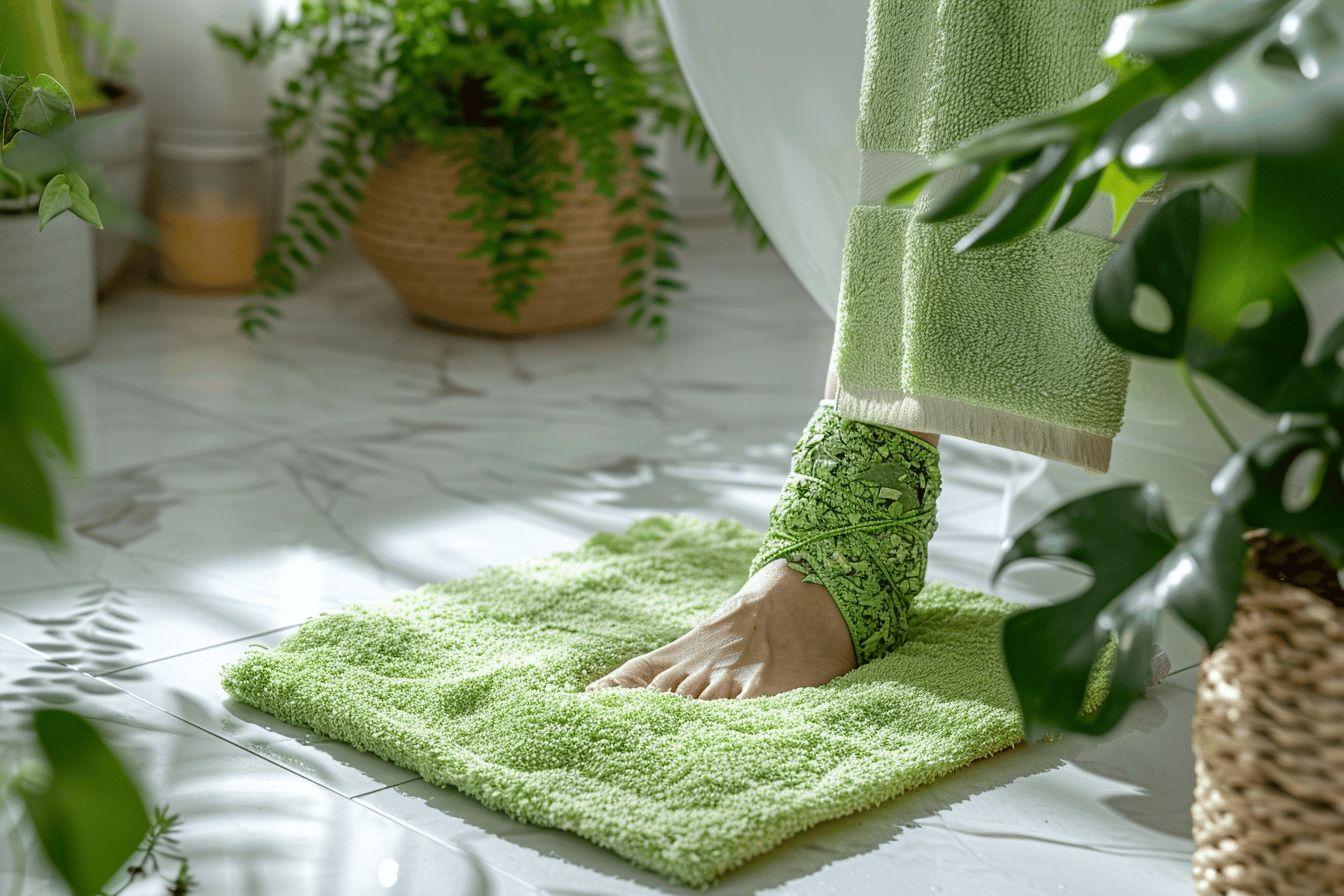This article presents natural solutions and expert advice to relieve and heal plantar fasciitis, a painful foot condition.
- Understanding the Symptoms: Heel pain, stiffness, increasing discomfort
- Natural Remedies: Ice application, stretching, massage, essential oils
- Preventive Tips: Proper footwear, maintaining a healthy weight, stretching routine
- Medical Consultation: Necessary if pain or symptoms persist aggravated
The plantar fascia, also called the plantar fascia, is a fibrous structure that supports the arch of the foot. When it becomes inflamed, it can cause intense pain, known as plantar fasciitis. This condition affects many people, especially athletes and those who spend long hours on their feet. Fortunately, there are natural and effective solutions to relieve this pain and promote healing. Let's take a look at how to treat plantar fascia with natural remedies and expert advice.
Understanding Plantar Fascia and Its Symptoms
Before diving into solutions, it's essential to understand what plantar fascia is and how to recognize its symptoms. The plantar fascia is a band of connective tissue that extends from the heel to the toes, playing a crucial role in supporting the arch of the foot. When inflamed or irritated, it can cause intense pain, particularly in the heel.
The most common symptoms of plantar fascia include:
- A sharp pain in the heel, especially upon waking or after a period of inactivity
- A feeling of stiffness in the foot
- Pain that intensifies after physical exertion
- Discomfort that worsens throughout the day
It's worth noting that plantar fascia can sometimes be confused with other foot conditions, such as heel spur. If symptoms persist, it is recommended to consult a healthcare professional for an accurate diagnosis.

Seven Natural Remedies to Relieve Plantar Fascia
Here are seven effective natural solutions to relieve plantar fascia pain and promote healing:
- Ice Application: Apply ice to the painful area for 15 to 20 minutes, several times a day, to reduce inflammation.
- Gentle Stretching: Perform Specific plantar fascia stretches to improve flexibility and reduce tension.
- Foot Roller Massage: Use a tennis ball or massage roller to gently massage the sole of the foot.
- Essential Oils: Apply an anti-inflammatory essential oil blend such as peppermint or eucalyptus.
- Foot Soaks: Prepare a soothing foot soak with Epsom salts to reduce inflammation and pain.
- Compresses Clay: Apply a green clay compress to the painful area for its anti-inflammatory properties.
- Rest and Elevation: Rest your foot and elevate it regularly to reduce pressure and promote blood circulation.
These natural remedies can provide significant relief when used regularly and in combination. However, it is important to remain patient, as healing of plantar fasciitis can take time.
Expert Tips for Preventing and Healing Plantar Fascia
In addition to natural remedies, experts recommend several preventative and curative strategies to effectively treat plantar fasciitis:
1. Choose the right shoes: Choose shoes that offer good arch support and adequate cushioning. Avoid flat or overly rigid shoes, which can aggravate the condition.
2. Maintain a healthy weight: Excess weight can increase pressure on the plantar fascia. Maintain a healthy weight to reduce this strain. 3. Adopt a daily stretching routine: Incorporate specific stretches for the plantar fascia, calf, and Achilles tendon into your daily routine. These exercises can also help prevent other foot problems.
4. Use foot orthotics: Custom-made orthotics can help distribute pressure more evenly across the foot and relieve plantar fasciitis. 5. Modify Your Activities: If you participate in high-impact sports, consider alternating them with low-impact activities like swimming or cycling during the healing period. It should be noted that complete healing of plantar fasciitis can take several weeks or even months. Patience and consistency in applying these remedies and tips are essential to achieve lasting results. While natural remedies and expert advice can be very effective, there are situations where it is necessary to see a healthcare professional. Here are some signs that indicate it is time to seek medical help: 1. Persistent Pain: If the pain does not improve after several weeks of self-treatment, it is time to seek medical help. 2. Worsening of Symptoms: An increase in pain or the appearance of new symptoms requires a professional evaluation.
3. Limitation of Movement: If the pain significantly limits your daily activities, medical advice is recommended. 4. Numbness or Tingling: These sensations may indicate a nerve problem requiring further diagnosis. A podiatrist or physical therapist may offer more advanced treatments such as shock waves, cortisone injections, or even specific remedies for plantar fasciitis. In some rare cases, surgery may be considered, but it is usually a last resort. In short, treating plantar fasciitis requires patience and a multifaceted approach. By combining natural remedies, tailored exercises, and lifestyle changes, most people can find significant relief. Remember that each case is unique, and what works for one person may not be as effective for another. Listen to your body, be consistent in your efforts, and don't hesitate to seek professional help if necessary. With the right care and perseverance, you can overcome this painful condition and regain comfortable mobility.
Activity
Impact on Fascia
Recommended Alternative
Running
High
Swimming
Jump Rope
Very High
Stationary Bike
Walking Prolonged
Moderate
Elliptical
When to See a Healthcare Professional





Leave a comment
This site is protected by hCaptcha and the hCaptcha Privacy Policy and Terms of Service apply.